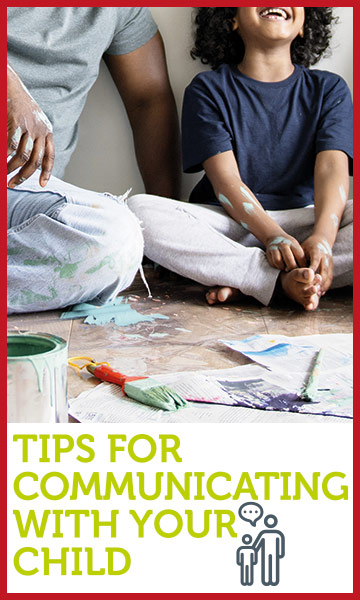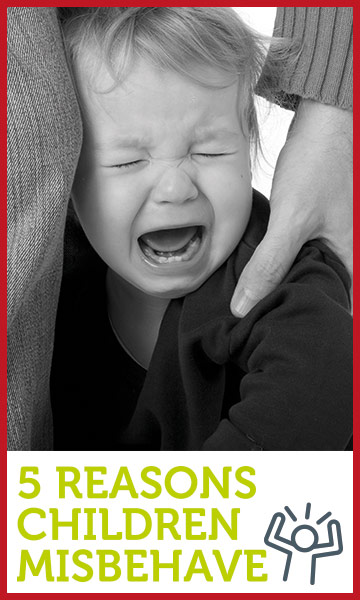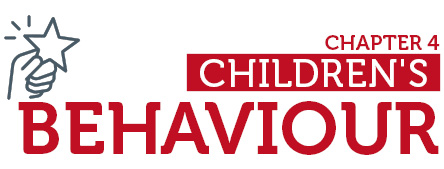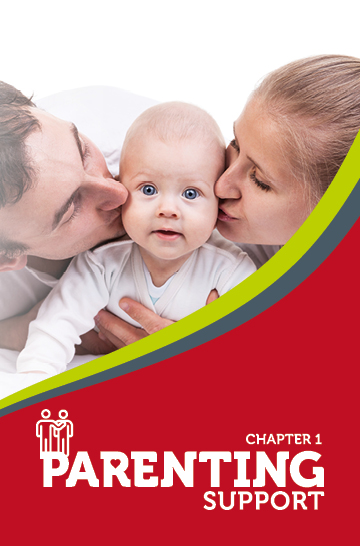HOW TO ENCOURAGE GOOD BEHAVIOUR
Teaching your child how to behave in appropriate ways is an important part of their social and emotional development. Children aren’t born with these skills, they are developed over time. As your child gets older, they will learn how to control and manage their own behaviour, without the need for parents and carers to guide them. A positive and encouraging approach is the best way to encourage good behaviour, no matter how old your child may be.
Tips for guiding children’s behaviour
The way you guide your child’s behaviour will depend on how old they are, but it’s never too early to start teaching your child good manners and appropriate behaviour.
- Your child will look to you and other members of your family for clues on how to behave, so it’s important to set a good example by demonstrating behaviours you want to see in your child. This includes using good manners, treating others with respect and coping with frustration, anger or sadness in healthy ways.
- Lower yourself down to your child’s level, look them in the eyes and touch them on the shoulder when talking to your child about their behaviour. This helps them focus on what you are saying and means you can genuinely listen to their point of view.
- Praise your child when they are behaving and be specific about what they are doing well. For example, ‘well done on playing so nicely with your sister, I like the way you are sharing your toys’. This helps them understand what they’ve done right, so they can do it again in the future.
- Tell your child how their behaviour makes you feel, so they begin to understand how their actions can affect other people’s emotions. For example, ‘I’m very sad that you’re not listening to me right now’.
- Teaching your child how to apologise is an important part of their development. Try to keep it simple when they are toddlers (such as ‘say sorry’) and as they get older, teach them to look at the person they hurt, say their name, apologise and explain why.
- Listen carefully to your child when they are expressing their feelings. If they feel ignored they are more likely to act out with bad behaviour. When they are finished talking, try to repeat their feelings back to them, such as ‘it sounds like you are feeling very sad about that’.
- Focus on the language you use when guiding your child’s behaviour. It’s often more effective to stay positive and say ‘please share nicely’ rather than ‘stop fighting’. This helps children understand what they should do next time.
- Be firm and teach your child that no means no. If you say no and then say yes later on, they will whine and behave badly to try and change your mind. Save words like ‘stop’ and ‘danger’ for serious situations, so they learn to pay attention to these words.
- Make sure your home is a safe and stimulating place for your child to play and all valuables are out of reach. Children are naturally tempted to touch and play with new things, so the less temptation they have to do the wrong thing, the better their behaviour will be.
- Give your child simple choices, such as ‘would you like to play outside or do some drawing?’, rather than asking open-ended questions such as ‘what would you like to do?’. This gives them a sense of control and avoids disappointing them if you can’t give them what they want.
- Keep your promises, so your child learns to trust you and respect your decisions. If you promise your child you will go to the park, go as soon as you can so your child believes what you say. Likewise, if you promise there will be no TV until they pick up their toys, stick to that promise.
- Children tend to tune out if you repeat the same instructions over and over again. Teach your child the importance of consequences by telling your child what to do once, reminding them why it’s important and then counting to three before carrying out the consequence.
- Use play activities to teach your child good behaviour and show them simple rules like being kind, helping others, saying please and thank you, and taking care of possessions. Reading stories about these topics is a great way to enforce these lessons in your child.
- You won’t be able to guide your child’s behaviour all the time, especially when you are busy or stressed. Instead, choose your battles and focus on things that really matter, rather than picking on every action and behaviour that isn’t ideal.
- Give your child more responsibilities as they get older, such as picking up toys or putting their plate in the kitchen. This will build their self-esteem and make them feel like they are an important part of the family.

TIPS FOR COMMUNICATING WITH YOUR CHILD
Good communication helps you build a strong relationship with your child and gives them the skills they need to understand and express thoughts, feelings and information. Research shows that the more words a child hears in the early years of their life, the more prepared they are when they start school.
By the time they are in third grade, children who hear more words tend to have bigger vocabularies, be stronger readers and perform better on tests. Children with communication difficulties are also more likely to have behaviour difficulties. In addition to verbal communication, young children can express themselves using pictures, body language and facial expressions.
Communicating with your baby (0-12 months)
Babies are ‘wired’ to pay attention to the sound of your voice and respond to it with sounds, facial expressions and body language. At this age, their primary form of communication is crying, which they will use to tell you that they are hungry, tired or uncomfortable. While it may feel scary at first, over time you will be able to recognise the different cries your baby uses to communicate their different needs.
It’s important to respond to your baby straight away when they cry, to show that you are there for them. Responding to your baby’s signals is one of the best ways to communicate with them. It helps your baby form a secure attachment to you and underpins their learning and development in the years ahead.
Try to spend time actively listening and responding to your baby’s noises, smiling at them and give them lots of cuddles and gentle massage. Talking and reading to babies is another important way to develop your baby’s communication skills and developing a strong relationship with them.
Communicating with your toddler (1-3 years)
By the time your child becomes a toddler, they will understand hundreds of words and begin putting simple sentences together in a conversation. Although they learn incredibly quickly, toddlers are still developing their communication skills and make lots of mistakes. This can cause them to get frustrated when they can’t find the words to express how they’re feeling, or when they can’t pronounce words in a way that can be understood by others.
It’s important to listen to your child carefully and give them plenty of time to finish what they are trying to say. Try to use simple language when speaking with them and avoid impatient behaviour like sighing, interrupting or looking at your phone. Spending quality time each day talking, reading and listening to your child is the best way to support their communication skills at this vital stage of childhood development.
Communicating with your pre-schooler (3-6 years)
At this age, children can have longer conversations and use language to communicate complex ideas. They also start to alter their communication style depending on who they are talking to, such as being more formal around teachers and less formal around friends. Preschoolers are now ready to learn basic communication ‘rules’ such as taking turns, speaking politely, not interrupting and not talking back.
You can help your child learn these skills by being a good role model and showing them how to communicate with others. If they forget the rules, gently remind them and explain why it’s important. It’s important to praise your child when they do a good job and set natural consequences when they choose to ignore the rules.

 Tour
Tour CCS
CCS  CALL
CALL























































 mail@reggioemilia.com.au
mail@reggioemilia.com.au 